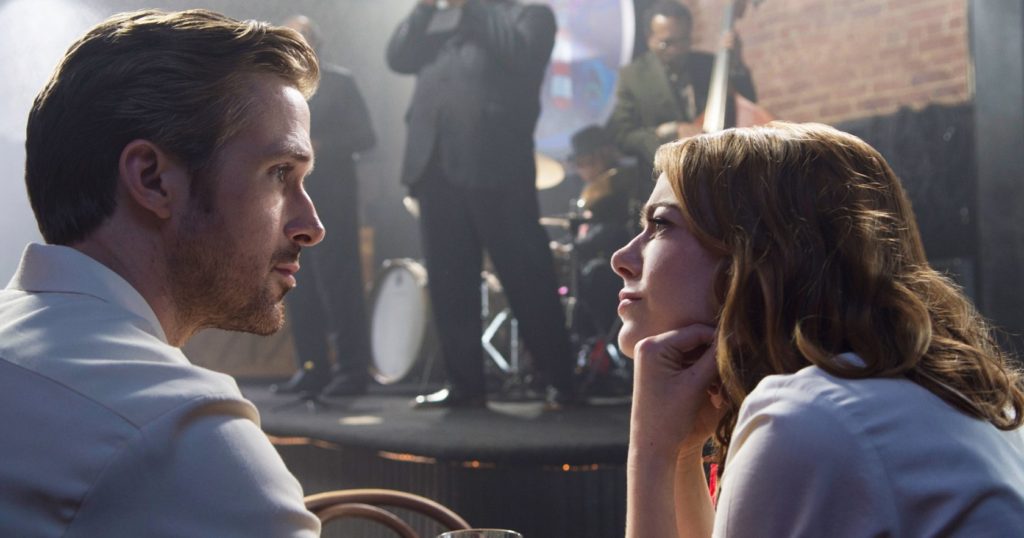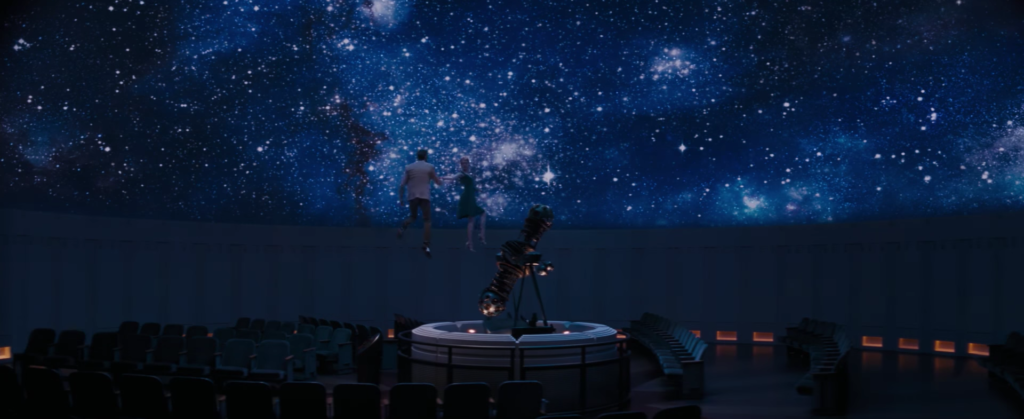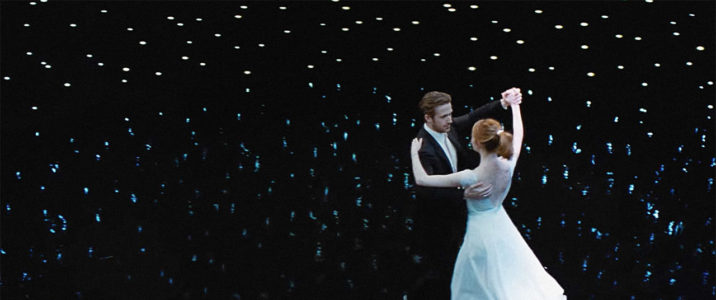If escapism and nostalgia have become particularly prevalent these last few years in American Cinema, then 2016 has thus far proved to be the apotheosis of such a trend. In a year defined by political and social strife, both within and beyond our borders, as well as a seemingly pronounced increase in the passing of revered artists, it has become the obligation of this contemporary generation of musicians, writers, and filmmakers to bear the torch being passed into an age of uncertainty, fear, and anger. It is here that Damien Chazelle’s La La Land arrives, in that peculiar precipice between past and future. In its portrait of a modern Los Angeles as if it were captured through the lens of Jacques Demy, it reverberates with reverence for the musicals of yesteryear while simultaneously acknowledging, in its Technicolor melancholy, how such idolatry of bygone iconography can induce myopic fanaticism. In the parlance of a character in the film, it is a type of thinking which can result in the worship of everything and the valuing of nothing.
That character is named Sebastian (Ryan Gosling), who is referring in this context to the city he calls home. He is understandably disillusioned with Los Angeles, as is Mia (Emma Stone), the young woman he shares this sentiment with. She is an aspiring actress working as a barista, he a struggling musician tasked with performing novelty Christmas tunes in posh restaurants. Their paths initially cross in the film’s opening minutes, though their first encounter stuck in traffic is far from romantic, with nary a word but certainly a rude gesture exchanged. Moments like these, which are peppered throughout the film, undercut some of the tropes of the genre, which in itself is part of the film’s design. While Chazelle’s penchant for these quotidian interruptions can feel as constructed as the elaborate dance routines and musical numbers he and his choreographer Mandy Moore and musicians Justin Hurwitz and Benj Pasek & Justin Paul create, they also resonate in critical moments of either humor or pathos, including a tearful audition Mia undergoes that is abruptly derailed by an assistant delivering coffee for the casting director.

Of course the paths of our leads align, though the film takes a refreshing amount of time before their romance ultimately blossoms. If Chazelle loses none of the kinetic thrust that characterized his previous feature, the tautly superb thriller Whiplash, it is nevertheless anything but in service of rumbling from one plot point to the next. Rather, he is intrigued by the passions that fuel his protagonists, as well as the locales synonymous with Pop Culture of yesteryear, be it classic Hollywood or the Golden Age of Jazz. Indeed, the site of Mia and Seb’s romantic consummation is the Griffith Observatory after a screening of Rebel Without a Cause abruptly cut short inspires them to take the trip and consequently engage in a dance that leaves them literally floating. Like another film from earlier in the year that reconfigured iconic Los Angeles institutions, Terrence Malick’s Knight of Cups, Chazelle is interested in the facets of the city that heighten the banal. Whereas the former sought glimpses of the natural world and the pervasive psychological presence of media content, the latter is more focused on interrogating the significance imparted upon a place by history as recounted through popular art and subsequently made more vivid through a romantic lens.

And it is in the observatory, approximately a little before the halfway mark, that the film commits its slyest subversion by continuing past the moment that should, ostensibly, be the ending, at least to a relatively lightweight musical film concerned with the question of whether its lovers shall unite. It is here where Chazelle exposes his modus operandi. By reducing the number of musical numbers in quantity and stylish execution, Chazelle pinpoints the demarcation between the act of dreaming and fitfully fostering said ambitions into reality. The result is that when a climactic audition is held, the function of the songs gain a newfound relevance. Instead of simply serving as exposition, thematic reiterations, or excuses for Chazelle and his DP Linus Sandgren to show off their cinematic chops (though sometimes the songs do fulfill all three of these dictates), they embody the yearning that courses through the film by their very existence. All of which is to say that this results in a denouement I dare not spoil, less in terms of its content than the overwhelming poignancy it invokes. Here, Chazelle’s ambitious exercise in homage reaches its zenith, and it is utterly captivating in its heartbreaking beauty.
If anything, the bittersweet confections of postmodern musicals like The Umbrellas of Cherbourg are as essential an influence on La La Land as the classical strain films like Singin’ in the Rain and Top Hat hail from. For a director who is enamored with his forebears, Chazelle blessedly leaves a distinct impression that transcends mere mimicry, thanks in no small part to his charismatic leads, particularly a spectacular Emma Stone. There are instances where the director’s steady hand as a cinematic raconteur falters and his confident braggadocio threatens to subsume his characters into the artifice. But again, to borrow a phrase from Sebastian, that’s the point. There’s an admirable foolishness in those who make themselves artistically vulnerable, but an altogether different sensitivity in those who strive to remember the humanity inherent in these endeavors. La La Land is one such film, and even in its imperfect form expresses this valuable reminder that will serve us all well as we tread with trepidation into an uneasy future.
